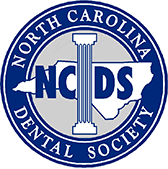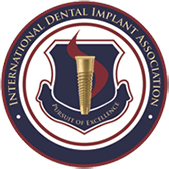
Do you have dry mouth in the morning? You know, that one that makes you feel like you had cotton in your mouth the whole night? This is something almost everybody has at some point – and it’s perfectly normal.
However, when your mouth always feels dry, you may have a real medical condition called xerostomia. And this is an issue that you need to consult with your dentist immediately.
We all need saliva to moisten, cleanse our mouths, and digest food. Saliva also prevents infection by controlling bacteria and fungi in the mouth. When you don’t make enough saliva, your mouth gets dry and uncomfortable. This causes your mouth’s bacterial level to rise, which increases your chances of getting gingivitis, gum disease, tooth decay, and mouth infections.
Some causes of dry mouth can include:
- Some medications used to treat depression, anxiety, pain, allergies, muscle relaxants, etc.
- Certaindiseases and infections including HIV/AIDS, Alzheimer’s, diabetes, anemia, stroke, Parkinson’s disease, etc.
- Medical treatments, including radiation and chemotherapy.
- Dehydration.
- Smoking or chewing tobacco can affect how much saliva you make and aggravate dry mouth.
- Breathing with your mouth open can also contribute to the problem.
Dry Mouth Remedies
If you suffer from a mild version of dry mouth and throat, here are some dry mouth remedies that can help minimize your symptoms and discomfort:
- Avoid caffeine and alcohol. These products can cause dryness and irritation. Don’t use a mouthwash that contains alcohol.
- Don’t use tobacco. If you smoke or chew tobacco, stop, because tobacco products can dry and irritate your mouth.
- Avoid over-the-counter antihistamines and decongestants. These things can worsen your dry mouth and throat.
- Sip water, sugar-free drinks or suck on ice chips throughout the day to moisten your mouth, and drink water during meals to aid chewing and swallowing.
- Chew sugar-free gum or suck on sugar-free hard candies.
- Try over-the-counter saliva substitutes that contain carboxymethylcellulose or hydroxyethyl cellulose, such as Biotene Oral Balance.
- Breathe through your nose,not your mouth. You may need to seek treatment for snoring that causes you to breathe through your mouth during the night.
- Add moisture to the air at night with a room humidifier.
If your symptoms persist, you should definitely visit your dentist for a complete oral health exam.
Depending on your diagnosis, your dentist may:
- Change your medications (if you’re taking one that causes dry mouth).
- Recommend products to moisturize your mouth. These can include prescription or over-the-counter mouth rinses, artificial saliva or moisturizers to lubricate your mouth.
- Prescribe medication that stimulates saliva. Your doctor may consider prescribing pilocarpine (Salagen) or cevimeline (Evoxac) to stimulate saliva production.
As always, you should bevisiting your dentist every six months, and if you experience any dry mouth symptoms, you should let him/her know during your next visit. It might be nothing to worry about, and only a small discomfort in the morning. Then again, it could be a symptom of something worse. Only your dentist will know for sure.
-Dr. Taj
For more information, be sure to visit us at one of our Modern Family Dental Care locations.Contact us today to schedule an appointment.
[table id=2 /]





